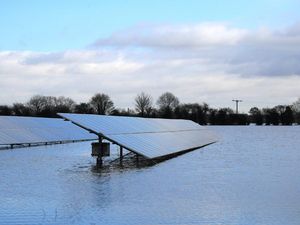Thousands ‘were paid to use electricity on sunny day’
Power prices had turned negative, giving some customers around 4p for each unit they used.

Thousands of households across Britain were paid to use electricity on Tuesday as sunny weather and fresh winds coupled with low demand.
Some electricity customers were getting up to 4p per unit of electricity they used between 9am and 4pm, the longest period of so-called negative pricing yet.
Although most customers across the British energy network were still having to pay for their electricity, those with Octopus Energy’s highly responsive Agile Tariff were able to take advantage of the plunging prices, which went below zero.
At around midday, more than a quarter of the UK’s electricity was coming from solar panels, with wind turbines producing 30%. Gas power plants supplied about 20%.
Under wind and solar producers’ contracts, the grid has to pay them if it wants them to shut down to balance supply and demand and ensure there are no blackouts.
At times when renewable energy is producing too much it becomes cheaper for National Grid to pay customers to use more than for it is to pay for wind turbines to stop spinning.
According to recent figures from energy experts Cornwall Insight, demand for electricity fell by around 13% after the UK went into coronavirus lockdown, as factories and offices closed their doors.
“With lower electricity demand due to Covid, we’re using less dirty power,” said Octopus Energy chief executive Greg Jackson.
“An exciting consequence is that when the wind blows, and the sun shines, we keep seeing so many green electrons that the price can even go negative.”
Gas was still producing about a fifth of Britain’s electricity at midday on Tuesday.
The grid cannot shut down all gas turbines which play the vital auxiliary role of providing inertia to the grid, which keeps the frequency stable.
National Grid is currently investing millions in systems that can replace this vital function without burning fossil fuels.





